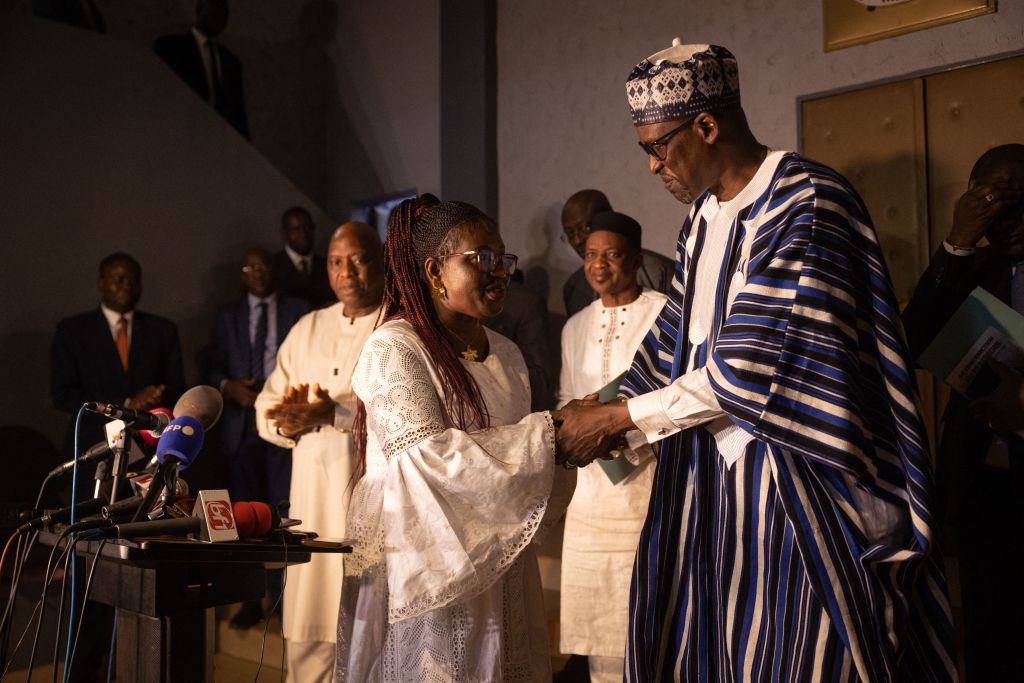ADF STAFF
The recent outbreak of coups in West Africa has cast a spotlight on some shortcomings in transitioning back to democracy.
Since 2020, military juntas have swept to power in Mali (2021, 2022), Burkina Faso (twice in 2022) and Guinea. Four failed coup attempts also took place in West Africa in 2022.
None of the three juntas in power plans to yield control of the government in 2023.
Two researchers from the Institute for Security Studies (ISS), a South Africa-based think tank, are among the experts urging a new approach to managing West Africa’s military transitions back to democracy.
Researcher Aïssatou Kanté and Lori-Anne Théroux-Bénoni, regional director of the ISS Office for West Africa, the Sahel and the Lake Chad Basin, argued that pushing for a quick return to democracy has not been effective.
“So far, regional and multilateral partners’ responses have proven ill-adapted,” the researchers wrote in March 2023. “The Economic Community of West African States (ECOWAS), African Union, United Nations and other external actors have struggled to pressure military authorities into keeping transitions short and civilian-led.
“The options available to regional actors are limited but include optimizing the outcomes of the process by focusing on the substance of transitions rather than their duration.”
The researchers said these organizations should focus on learning from internal dynamics, previous transitions and poor governance that sets the stage for military interventions.
They noted that the previously ousted leaders in Burkina Faso, Guinea and Mali all came to power through coups or post-transition elections after an unconstitutional change of government.
In those cases, civilian leaders were elected within 16 months on average.
Ornella Moderan, an independent political and security analyst based in Bamako, Mali, said democracy in parts of West Africa has been undermined by decades of ineffective governance and a lack of transformational policies that could regain trust.
The result has been a lack of faith in the democratic process, in some countries. She cited an opinion survey conducted in Malian urban areas in May 2022 that found that just 3% of respondents wanted their transitional leaders to prioritize elections.
Moderan also raised the issue of heads of state who have flirted with authoritarianism.
“[ECOWAS] protocols for democracy and good governance condemn unconstitutional changes of government, such as military coups, but not constitutional manipulations by incumbents willing to overstay in power,” she wrote in a 2022 editorial for Nigerian newspaper Premium Times.
“This apparent double-standard weakens ECOWAS’ moral high-ground when it comes to enforcing democratic norms and values in the region.”
In Guinea and Mali, transitional governments hand-picked by junta leaders have arrested opposition leaders, banned journalists and media organizations, and influenced dialogue with traditional and social media campaigns.
It’s a blaring alarm beckoning regional bodies such as ECOWAS to be proactive in addressing the foundational issues that undergird coups.
“Regional organizations can help by displaying consistency in their support for democratic norms and values,” Moderan wrote. “This requires taking as firm stances against constitutional manipulations as against military takeovers.”
The ISS analysis highlighted the need for citizens, mediators and other regional stakeholders to play important roles in shaping policies that protect democratic institutions.
The key is to accomplish societal changes that can lead to stability and growth without endorsing coups.
“The return to constitutional order must remain a key objective,” the ISS researchers concluded. “But it can’t be the only endgame and the sole measure of success.”

